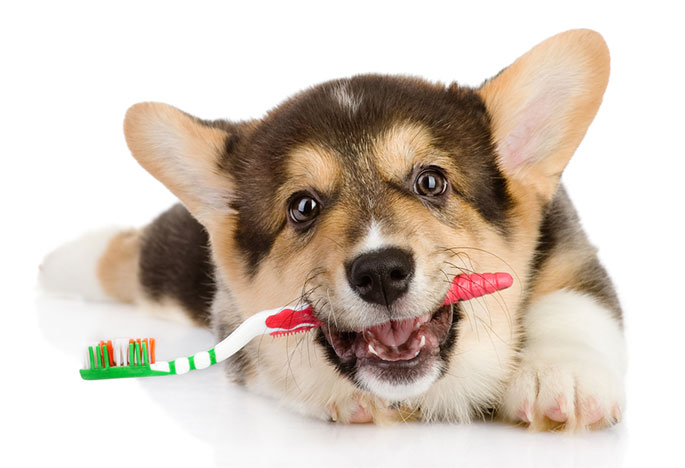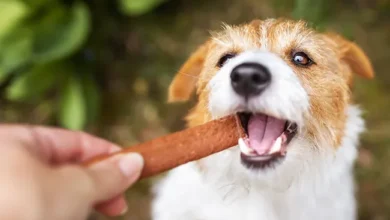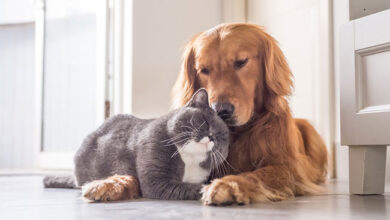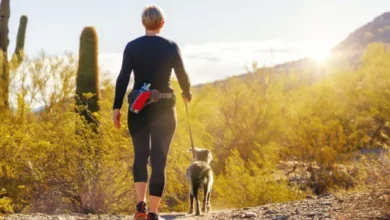
Maintaining oral hygiene for dogs is one of the most important forms of canine health care. Of course, having “doggy breath” right after a meal is normal.
But when your dog’s mouth is unbearable to be around, it’s certainly pointing towards a larger issue.
If you’re wondering how you can keep your dog’s teeth pearly white and healthy, you’ve come to the right place. Here are all the things you can do to give your dog the best dental care possible:
Read More:
- Caring for Your Dog’s Teeth | Why it’s So Important
- 5 Healthy Pet Tips Owners Need to Know
- How to Take Care of Your Dog’s Teeth
- how do you brush your dog’s teeth?
- Necessary Routine Care Tips For Dogs That You Shouldn’t Skip
Brush Your Dog’s Teeth Regularly
Getting your dog to stay still while you brush their teeth is no easy feat.
But brushing is a necessary evil that keeps your dog’s teeth in good condition. So, you’re going to have to deal with all the whining and chaos, and brush your pooch’s teeth every day.
Brushing removes food particles and gets rid of plaque and tartar buildup. It will also prevent your dog’s mouth from smelling like stinky feet, making those sloppy kisses much more enjoyable.
How to Normalize Brushing
Ideally, you should start brushing your dog’s teeth from when it’s a puppy. This will help your dog get used to the process and it will become part of the normal routine. However, if your canine is quite old and still scared of brushing, it’ll take more effort.
Start slowly, only doing it three to fours days a week at first. Use your fingers and move them around in soft circles. Make sure you speak to your dog gently and reward them after the process.
When your dog gets used to the sensation, you can introduce toothpaste to the mix. Let your dog taste a bit of the paste first, making sure it’s a flavor they’ll like. Then, gradually start brushing their teeth with toothpaste on your fingers before moving onto a brush.
Choosing the Right Brushing Tools
What you use to brush your dog’s teeth is extremely important. Buying flavoured toothpaste that appeals to your dog’s taste buds is a good idea.
But make sure the product you’re buying is especially catered to canines. The toothpaste we humans use contains fluoride, which is poisonous for dogs. So, always buy your canine’s toothpaste from a pet store, and check the labels.
As for the toothbrush, you should one that’s recommended by your vet. The toothbrush type will vary according to the size of your dog and their teeth. But remember, the bristles should be soft and you shouldn’t be skimping on quality.
Use Dental Chews and Toys
Some days are going to be more difficult than others. Although daily brushing is recommended, it’s not always possible. In that case, you can resort to dental chews and toys for extra help.
Dental chews include toys with ridges and treats that have a rough texture. They’re usually designed to remove plaque from canine teeth and they help to strengthen their gums. Some dental chews are also great for keeping bad breath at bay.
Certain chew toys are better for your dog’s teeth than others. Kong toys, rubber hockey balls, rope toys and synthetic bones are a good idea. However, stay away from toys that are really hard like nylon tennis balls.
It’s important to note that even though they’re healthy for your dog, you can’t rely entirely on dental chews and toys. There is no substitute for regular brushing.
Be Careful With Your Canine’s Diet
As with humans, what you feed your dog will have an impact on their teeth. Although wet food is generally tastier, it’s best to stick to dry, crunchy kibble. The softer food options will stick to their teeth and encourage the buildup of plaque.
Always avoid giving your dog human food that contains sugar like chocolate or candy. These are poisonous for your dog and incredibly bad for their teeth. So, ignore those puppy dog eyes pleading for sweets, and keep even the vet-approved treats to a minimum.
You should also avoid giving your dog rawhide or raw bones. These are dangerous for your dog as they might damage their internal organs, or even cause your dog to choke.
Get Regular Dental Checkups
A dog should get dental checkups every six months to once every year. This might seem unnecessary, especially if you take special care of your dog’s teeth. But trust me, it’s an investment you’ll be thankful for later.
As the saying goes, prevention is better than cure. Detecting problems early on will help you tackle health issues better and adjust your canine’s lifestyle. Spending money on checkups now will save you from much more serious problems that may arise later.
Dental check-ups are especially useful for identifying signs of oral cancer. And if your dog has a bad case of plaque buildup, it’s a good idea to get their teeth professionally cleaned.
Be Wary of Bad Dental Health Signs
Dogs can’t tell you if there’s something wrong with their body. And we often forget to check their teeth when something seems off.
This is why, as the owner, it’s your responsibility to always observe your dog for odd behavior and symptoms. Check your dog’s teeth every day. If you see any broken or worn out teeth, it’s time to call the vet.
Look out for bad breath, unusual amounts of drooling and inflammation of the gums. Even if your dog is eating normally, these symptoms usually indicate a problem.
So, at the very least, give your vet a call to make sure there’s nothing to worry about.
Extra Dental Hygiene Tips
You now know a lot about your dog’s dental care. But here are a few extra tips that may be useful:
- Plaque usually builds up on the inside of a dog’s cheek. So when brushing, make sure to concentrate on those areas.
- Chicken or peanut butter flavoured toothpaste are usually a canine favourite. Dogs are more likely to accept having their teeth brushed when it tastes good.
- Dog tooth wipes are a great way to remove plaque. Although they can’t reach every nook and cranny, they’re a good substitute for a quick cleanup.
- There’s a product called a “dental spray” that provides your dog’s teeth with enzymes for breaking down plaque. These also work wonders for keeping your dog’s breath smelling fresh
- You also have the option of adding a solution to drinking water that gets rid of the bacteria in your dog’s mouth.
Complications from Bad Dental Care
The most obvious consequence of bad dental care is dental disease. This is extremely painful for your dog, and only worsens with age. What’s more, I’m sure you don’t want your dog’s teeth to become damaged or fall out.
However, all the warnings for bad dental care is not just for bad breath and rotten teeth. There can be some pretty serious complications to your dog’s health if you don’t take their oral hygiene seriously.
A much scarier aspect of canine dental problems is that plaque might get through to their bloodstream, reaching vital organs like the heart, liver and kidney. This means bacteria can spread to these organs and damage them, leading to severe life threatening health issues.
Final Thoughts
As a pet owner, you are your dog’s guardian and caretaker. This means that you’re responsible for keeping hemt happy, healthy and safe.
Caring for your canine companion isn’t limited to exercise, playtime and diet. Things like grooming and dental care are just as important.
Having bad oral hygiene is not only bad for your dog’s health, but it might also cause them a lot of pain. And since dogs can’t express themselves, the problems only show up visibly much later on, usually when it’s too late.
So, it’s high time to make the necessary changes and start taking dental care for your canine companion more seriously!



